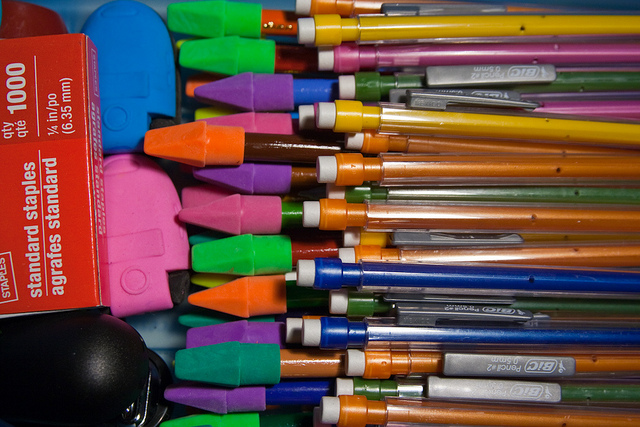More than 30,000 B.C. teachers voted “yes” by 99.4 per cent to return to classes — if the B.C. Liberal government will agree to send to arbitration all the issues except for those related to court decisions.
In announcing the results, BCTF President, Jim Iker, said “Tomorrow morning, custodial staff could be pulling chairs off desks and teachers could be setting up their classrooms. School counsellors could be finalizing time tables. Teachers could be powering up the smart boards. Classes could start this week. Children could be learning.”
Iker said “there is a single group of people standing in the way of schools opening their doors tomorrow.”
The B.C. government has said “no” to negotiation — unless the BCTF agreed to the terms set out by the government. It has said “no” to mediation — unless the BCTF agreed to the terms set out by the government. And it has said “no” to arbitration.
The excuses for its position are running out. Premier Christy Clark has said it would be unfair to the members of other public sector unions if the BCTF was outside the “zone of affordability.” Presidents of other public sector unions joined together to make it clear that their unions have no problem with the BCTF reaching an agreement different from theirs.
The government negotiator, Peter Cameron, had to admit that there was no “me too” clause in the other union agreements. The claim had been that provisions in settled public sector agreements would require the government to reopen the other contracts to give more money to the members of those unions.
And the “no money available” claim was undermined when the Minister of Finance reported the day before the teacher vote that the provincial budget surplus was larger than anticipated. But he announced that this money could not go to settle with teachers.
The BCTF call for arbitration excludes the government’s proposed E80 clause. Two prominent lawyers came down on the side of teachers rejecting this clause. E80 would have the effect of making the B.C. Supreme Court decisions in favour of teachers have no effect, even if the Appeal Court and the Supreme Court of Canada side with teachers.
The court case is about conditions essential to teachers and students — limits on class size, limits on the number of students with special needs in a class and staffing formulas for specialist teachers, including Special Education, English Language Learners and teacher-librarians.
These were provisions stripped from the teacher collective agreement by legislation in 2002 when Christy Clark was education minister.
Former crown prosecutor Sandy Garossino explained in a TV interview how the government is trying to force teachers to abandon their rights under the Canadian Charter of Rights and Freedoms.
In a blog posting, Joel Baken, a UBC professor of constitutional law, said:
In my view, the BCTF is acting sensibly and reasonably in wanting to eliminate unresolved, yet crucial, legal issues from bargaining. It is not that the BCTF doesn’t want to bargain those issues — as the Minister seems to suggest; it is that they want to wait until the courts have finally determined the respective rights of the parties on those issues before commencing bargaining. That makes eminent sense, as does the proposal to go ahead with binding arbitration on those parts of the dispute that are not currently before the courts.
Other B.C. unions have offered resources to help the BCTF continue the fight, joining together to offer interest-free loans of up to $8 million. In addition, the BC Nurse’s union is making a $500,000 grant to a hardship fund for teachers.
Even the Chinese government has entered the dispute. B.C. school boards take in about $150 million annually in tuition from international students. China is the source of many of these students. Consulate officers reported a meeting with education officials to express the concern of parents who have sent their children to B.C. to attend public schools.
The government will be under increasing pressure to agree to binding arbitration and get the schools to open for a new school year.
Larry Kuehn is the B.C. Teachers’ Federation’s Director of Research and Technology.
Photo: flickr/Steven Depolo



